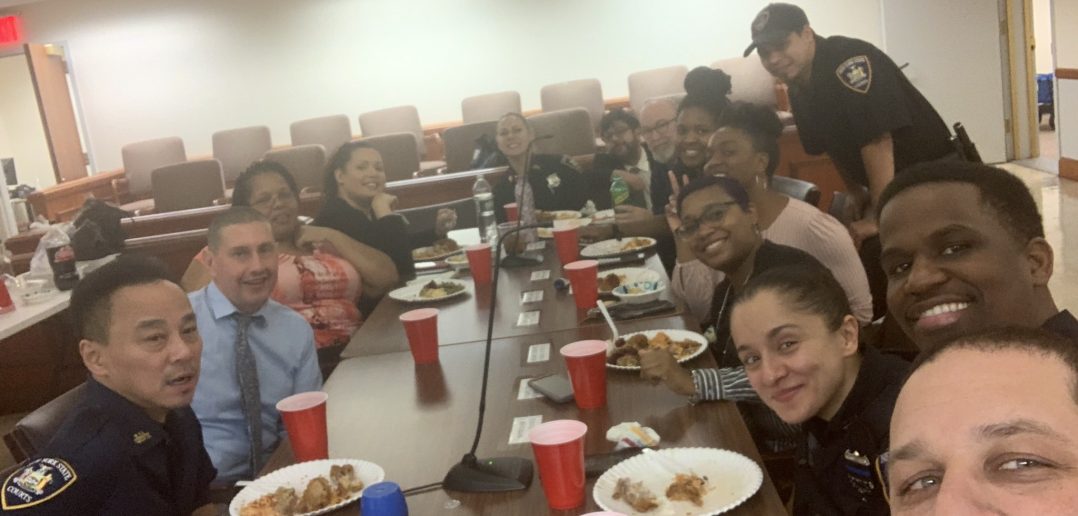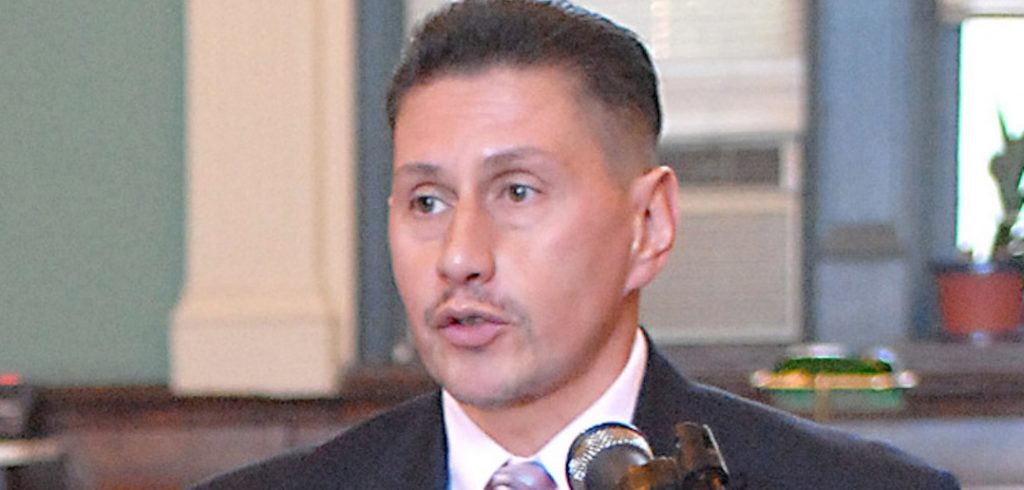For years, the Bronx County Family Court would transform on Tuesdays from a courtroom into the unlikeliest of dance floors. Promptly at 1 p.m., Judge Ruben Martino would end the court’s sessions, and with the help of his staff, including Court Officer Jermel Singleton ‘22, push chairs and tables aside to make room for a weekly salsa lesson led by Judge Martino and attended by administrative staff, court officers, and other judges.
According to Singleton, this is just one example of the way Judge Martino, who passed away in December 2020 at the age of 64, engaged with everyone he encountered. “It really didn’t matter who you were and what position, he treated you with respect,” Singleton recalls.
In this spirit of service and loyalty, Judge Martino’s college classmate and former Legal Aid colleague Professor Russell Pearce has helped found Fordham Law’s new Honorable Ruben Martino Memorial Fellowship, which will fund students in unpaid public interest summer internships. The fellowship, which is taking applicants for the summer of 2021, seeks to provide funding opportunities in public interest law for first generation law students and students from groups that are historically underrepresented in the practice of law.
Judge Treated Everyone with Respect

Judge Martino graduated from Bronx High School of Science, Yale University—where he met Pearce—and the University of Pennsylvania Law School. He began his career as a staff attorney for Bronx Legal Services, handling landlord/tenant cases on behalf of local tenants. In 1994, he was appointed to the Housing Court. Judge Martino joined the Bronx Family Court in 2003.
Singleton, who served in Judge Martino’s courtroom for a year before the judge’s passing, remembers him as a jurist with empathy. “I can’t say enough about how he judged people, particularly when they were at the lowest point in their life.”
Pearce recalls observing Judge Martino in his courtroom. “I appreciated how he was able to deal with everything, treating everyone with respect as a human being and applying the law in very wise ways.”
“In his professional life, his concern for the families before him was always foremost. He applied his considerable legal acumen with understanding and fairness,” notes Judge Jeanette Ruiz of the New York City Family Court. “It was because of these qualities that I selected him for the position of supervising judge of the Bronx County Family Court.”
Presiding Justice Rolando Acosta of the New York State Supreme Court, Appellate Division, First Department, first met Judge Martino when Justice Acosta was on staff at Legal Aid and Judge Martino was at Bronx Legal Services. The two future judges would discuss litigation strategies and collaborate on cases. “It grew to a very personal level where we played basketball with a bunch of other legal services employees.”
Years later, Judge Martino still bonded with colleagues over workouts. Even in the last months of his life when his illness was advancing, Singleton says Judge Martino would challenge court officers to push up contests.
Legacy of Public Interest
Justice Acosta says Judge Martino was part of a community of public interest lawyers eager to give back and help future generations have the same opportunities. “He was a guy who would give you the shirt off his back,” notes Justice Acosta. “The word ‘no’ was not in his lexicon.”
“We were able to make the choices to do public interest law,” says Justice Acosta of himself, Judge Martino, and their contemporaries. As student debt has increased over the years, he notes that it has become more difficult for law students to make that choice.
Justice Acosta hopes that helping students gain experience in public interest law during summer internships will encourage them to pursue it in the long term. “Once they see the nature of public interest work, it’s hard to say no to that kind of stuff.”
A “Local Kid” Exemplifying Fordham’s Values
When Pearce began teaching the housing rights clinic at Fordham, he invited Judge Martino to judge the clinic’s moot court competition. “He would always give of his time generously to the students,” says Pearce.
After Judge Martino’s passing, Pearce reached out to Fordham Law’s Public Interest Resource Center about the possibility of starting a fellowship.
“He was trying to think of a way to honor his dear friend,” says Leah Horowitz, Assistant Dean for Public Interest and Social Justice Initiatives at Fordham Law, noting “how beautiful it is to honor someone’s legacy in this way.”
“It’s incredibly moving to see that those who loved and admired Judge Martino have chosen to honor him in this way,” says Dean Matthew Diller. “This fellowship is a wonderful tribute that will help nurture the next generation of public interest lawyers.”
The Martino Fellowship is now open for applications. “We’re really looking for students who have a demonstrated commitment to public interest law,” Horowitz notes, especially students from traditionally marginalized groups and first-generation law students with a vision for, and ongoing commitment to, public interest work. “It shouldn’t be a situation where only law students and lawyers who are privileged can do this work.”
Justice Acosta, who has also guest lectured at Fordham, notes that while Judge Martino’s Ivy League education might have afforded him any number of opportunities, he always lived and worked in the community in the Bronx where he grew up. He notes that Judge Martino’s legacy of service is in keeping with Fordham’s mission. “Since he was a local kid, I think Fordham is perfect.”

